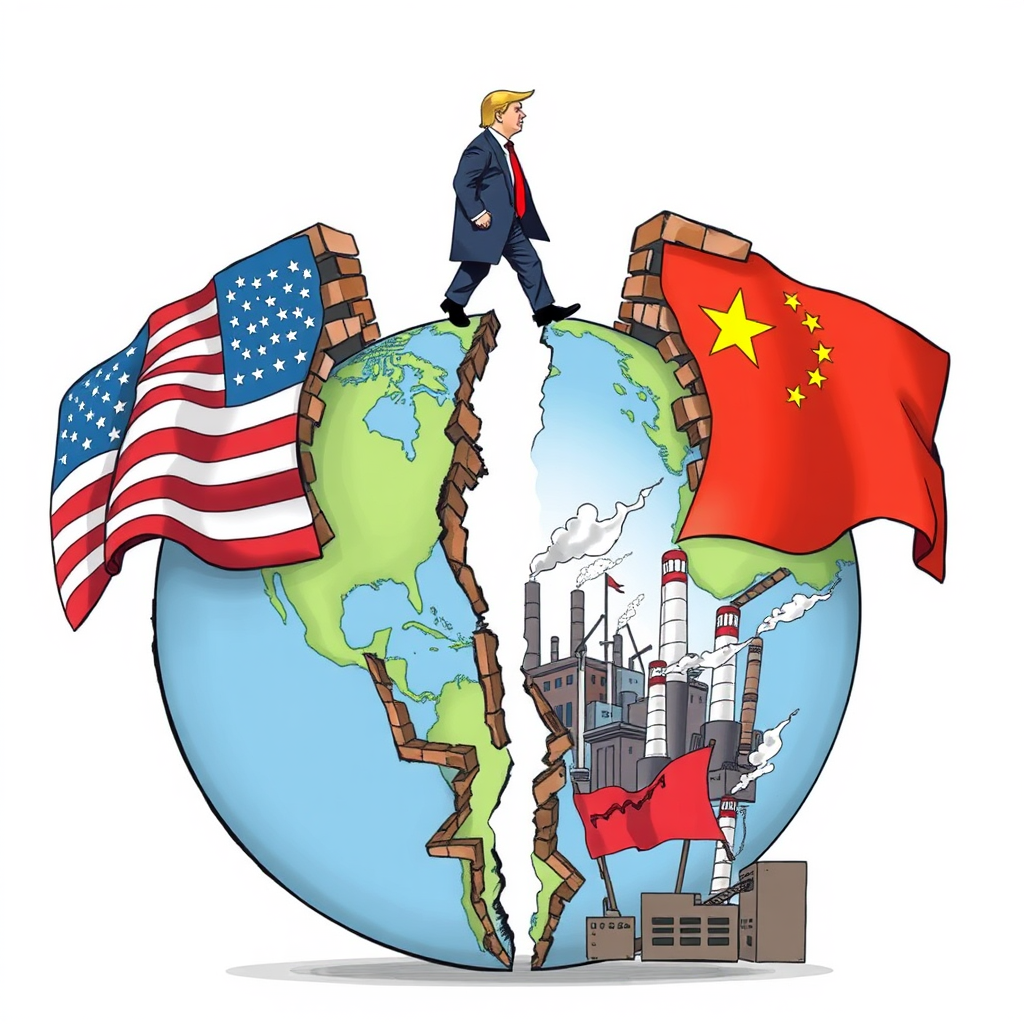Trump Blames China's Panic Over New Tariffs

President Donald Trump doubled down on his aggressive trade policies Friday, dismissing global market anxieties and accusing China of overreacting to newly imposed tariffs. His comments came as stock markets worldwide experienced significant declines and fears of a full-blown trade war intensified.
Trump, via his Truth Social platform, characterized China’s retaliatory tariffs – announced earlier in the day – as a panicked response. “China played it wrong, they panicked – the one thing they cannot afford to do!” he posted, maintaining his characteristic all-caps style.
The market reaction was swift and substantial. Both the Dow Jones and S&P 500 opened with losses approaching three percent, while European markets in Frankfurt and London fell by more than four percent. Tokyo’s Nikkei closed down 2.8 percent. Despite the downturn, Trump remained defiant, asserting that his policies would not change and predicting an opportunity for wealth creation. “This is a great time to get rich, richer than ever before,” he wrote.
China’s response included 34 percent tariffs on a range of US imports, effective April 10th, and a threat to pursue legal action at the World Trade Organization. Beijing also signaled potential restrictions on exports of rare earth elements – crucial components in high-tech manufacturing.
While China forcefully responded, other major US trading partners are adopting a more cautious approach. The European Union, already targeted with a 20 percent tariff by Trump, is seeking a measured response. EU Trade Chief Maros Sefcovic indicated a willingness to engage in dialogue but warned that the bloc would not remain passive if a fair agreement cannot be reached. France and Germany have floated the possibility of a tax on US tech companies as a potential countermeasure.
The situation is prompting calls for economic patriotism within the EU, with French Economy Minister Eric Lombard urging companies to prioritize domestic investment. However, EU officials are also exploring alternatives to tit-for-tat tariffs, focusing on tools like data exchange and taxation.
Japan and Canada have also responded to Trump’s tariffs, which include a 25 percent levy on all foreign-made cars. Canada swiftly mirrored the tariff on US imports, leading to production pauses at some automotive plants owned by Stellantis. Nissan announced revisions to its US production plans, while Volvo Cars, owned by Chinese company Geely, signaled an increase in US vehicle production.
Amidst growing international criticism and concerns about rising domestic prices, US Commerce Secretary Howard Lutnick offered staunch support for Trump’s approach, stating, “Let Donald Trump run the global economy. He knows what he’s doing.”
This escalating trade conflict presents a significant risk to global economic stability. While Trump appears to believe his policies will ultimately benefit the US economy by incentivizing domestic manufacturing, the immediate impact is widespread market volatility and growing uncertainty for businesses and investors worldwide. The long-term consequences remain to be seen, but the current trajectory suggests a prolonged period of trade tensions and potential economic disruption.